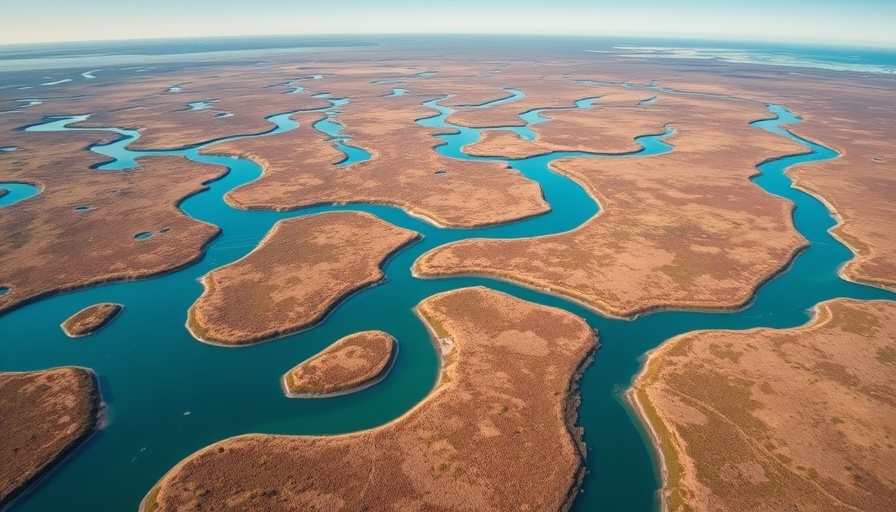
Alaskan Wilderness at Risk: The Ongoing Battle Over Natural Resources
The Trump administration's recent proposal to open millions of acres of the National Petroleum Reserve in Alaska (NPR-A) to oil and gas drilling has sparked intense debates among environmentalists, local communities, and industry advocates. This move, which aims to reverse restrictions put in place by the previous Biden administration, has raised significant concerns about the implications for precious wildlife habitats and Indigenous cultures. As the conversation unfolds, it's crucial to consider both the environmental stakes and the motivations behind energy policies.
Environmental Concerns: The Impact on Wildlife and Indigenous Communities
Situated on Alaska’s North Slope, the NPR-A is a crucial habitat for diverse species, including polar bears, migratory birds, and caribou. This region is not only significant for its biodiversity but also plays an integral role in the lives of Indigenous communities who rely on the land's resources for their sustenance. Kristen Miller from Alaska Wilderness League voiced the fears of many conservationists, stating that the rollback of protections threatens the ecological fabric of the Western Arctic.
Local groups, such as Grandmothers Growing Goodness, emphasize that the proposed changes could harm the Teshekpuk Lake area—home to essential caribou herds and vital for subsistence practices such as hunting and fishing. Concerns are growing that catering to the extractive industry may come at a staggering ecological cost, undermining the very natural heritage that locals have worked to preserve.
The Energy Independence Argument: Economic Perspectives
In defense of this policy shift, U.S. Secretary of the Interior Doug Burgum and Energy Secretary Chris Wright argue that responsible energy development in the NPR-A is vital for enhancing America’s energy independence. Burgum asserted that the prior administration's regulations were more obstructive than necessary, violating the mandate put forth by the Naval Petroleum Reserves Production Act of 1976. For many, the argument revolves around providing U.S. communities with energy security during a time of global uncertainty.
However, while the drive for energy independence may be persuasive, critics question whether it is worth the potential environmental degradation. They advocate for alternative energy solutions that would not only safeguard wildlife but also support long-term economic sustainability and a transition to greener energy sources.
Historical Context: Navigating Past Policies and Future Implications
The evolution of energy policies surrounding the NPR-A provides essential context for today's discussions. Historical trends show a pendulum swing between prioritizing conservation and maximizing resource extraction. Past administrations had explored various strategies to protect sensitive areas, leading to the establishment of guidelines intended to preserve critical habitats.
This latest retracement to drilling rights draws stark contrasts to earlier efforts aimed at safeguarding Alaska's unique ecosystems. By analyzing historical environmental policies, one can better understand the cyclical nature of these debates and the potential long-term consequences of current decisions.
Exploring the Broader Implications for Hospitality and Eco-Conscious Travelers
For boutique hospitality professionals and eco-conscious community members, understanding the tension between energy development and ecological protection is paramount. Many small hotel owners and eco-lodge operators emphasize creating connections between travelers and the natural world, making sustainable practices integral to their mission.
The ongoing developments in Alaska might influence tourism trends, as visitors seeking authentic experiences increasingly prioritize eco-friendly practices. This situation highlights the need for businesses to adapt their offerings to align with the shifting landscape of environmental awareness. As concerns grow over climate change and natural resource depletion, shared responsibility in conservation practices becomes more essential than ever.
What Can You Do? Taking Action Toward Responsible Practices
As discussions regarding Alaska's National Petroleum Reserve unfold, individuals, businesses, and communities have a chance to advocate for sustainable practices. Boutique hospitality operators can play a pivotal role by promoting eco-friendly technologies, supporting local conservation efforts, and raising awareness among guests regarding the significance of protecting vital habitats.
By integrating sustainable practices—such as chaos gardening and reducing reliance on sterile plastics—into their operations, these businesses not only enhance their appeal but also contribute to the broader movement toward ecological balance and climate awareness.
In a world increasingly captivated by the environmental challenges ahead, it's crucial that we engage with these discussions and consider how our choices impact the land, wildlife, and communities. As advocates for sustainable development, we can influence positive change while still catering to the needs of local and global communities.
 Add Row
Add Row  Add
Add 




 Add Row
Add Row  Add
Add 

Write A Comment